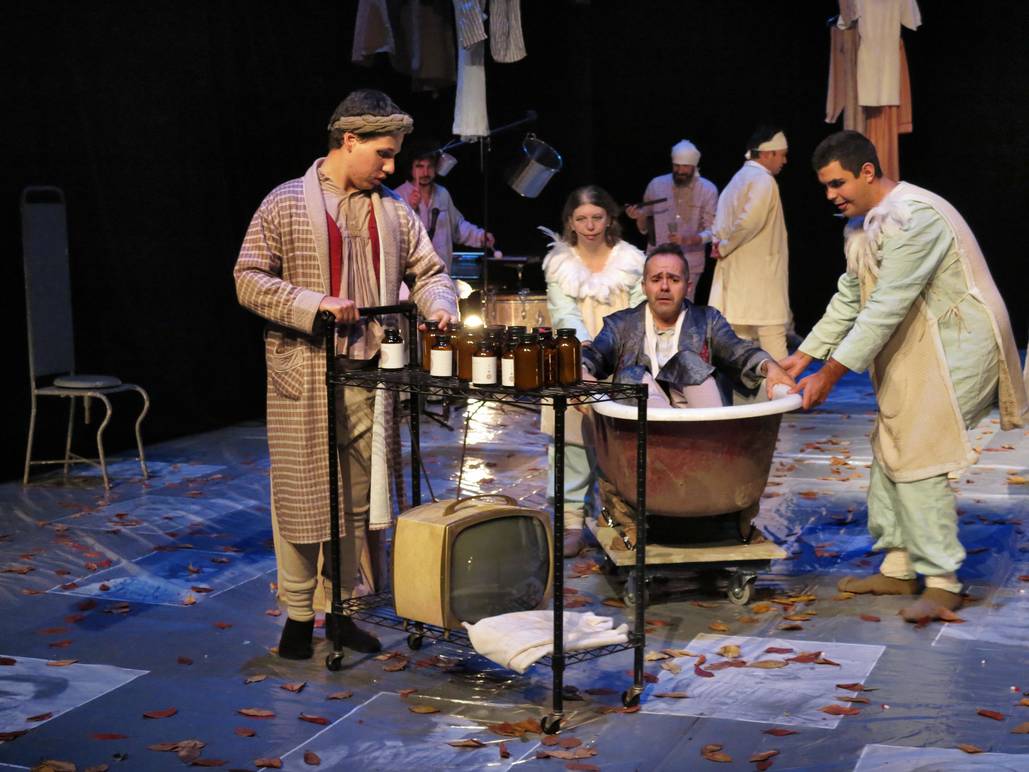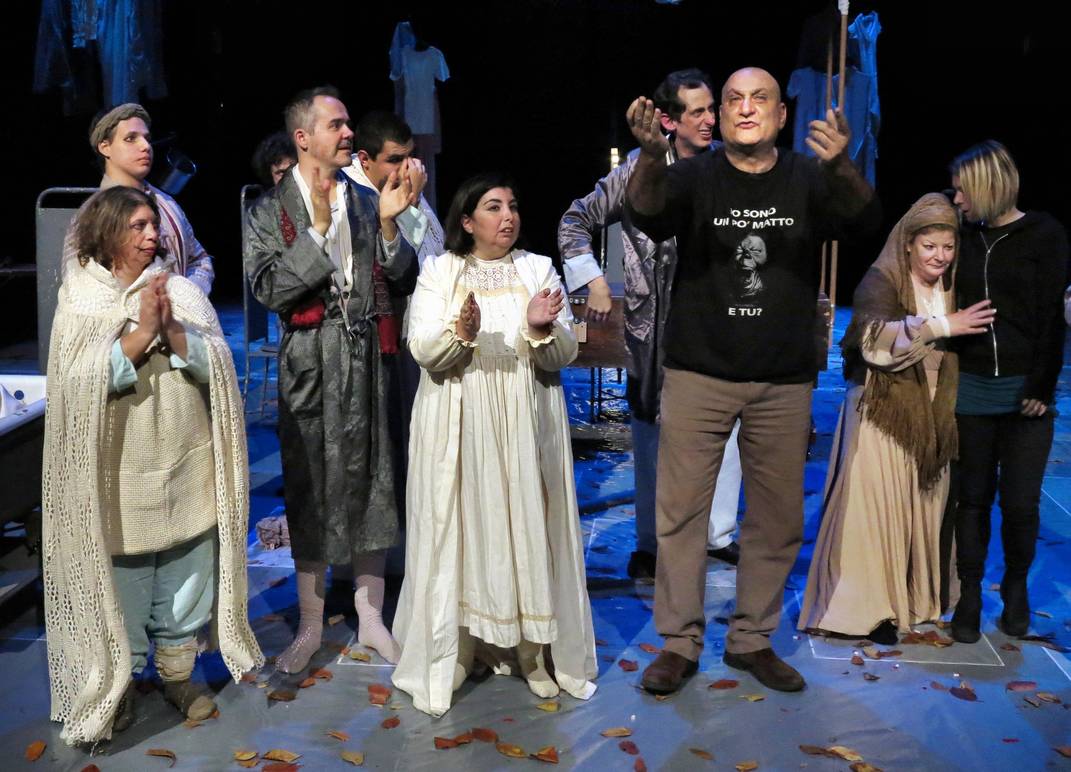The Folly of “Follies in Titus”
“Am I a man who cures, or a man who needs to be cured?” These are the words of Titus, words that bring to mind another Shakespearean soliloquy, uttered as he is lying in a clawfoot bathtub while holding a vial full of pills. His bandaged head, the rags he is wearing, reminiscent of a straitjacket, and his isolation immediately make the audience think of a violent prisoner or mental patient. As his hands shake, the noise of the pills becomes rhythmic as it is transformed in actual music accompanied by percussions and a multitude of sounds.
As the rhythm becomes more pressing, thus solemnly enter all the other characters of “Follies in Titus,” the retelling of “Titus Andronicus,” Shakespeare's bloodiest and most violent tragedy, told through the voices of the patients of a psychiatric hospital.
The play, conceived and directed, by Dario D'Ambrosi, originator of the theatrical movement called Teatro Patologico (Pathological Theater) founded for people with physical, intellectual and developmental disabilities, stars Paolo Vaselli, Cristiana Saporetti, Emanuele Antei, Marco Antonazzi, Fabio De Persio, Andrea Ferrari, Nicolò Fronticelli Baldelli, Paolo Giliberti, Sara Naso, Silvia Sorcini, Andrea Scrimieri, Claudia Terracini and Daniele Tortosa. The performers hail from La Magia del Teatro (The Magic of Theater), a Drama Academy for disabled people directed by D'Ambrosi himself, whose goal is to stimulate the students' creative freedom by giving them the theoretical and practical means to help them express themselves on the stage. “The school isn't so much a form of therapy as it is an amazing chance for them to express both artistically and emotionally, a place where they get to socialize and form important life skills, a serious vehicle of fun and a way to make the students feel and be the main actors.”
“Remember while you are watching” D'Ambrosi told the audience at La MaMa before the performance, “that you are not watching a show, you are seeing a miracle. They were in a mental hospital, now they are acting. I'm so proud.” The director is one of Italy's most distinguished theater artists, who has made a career of plays and films that are with and about people with psychiatric disabilities, creating productions that portray their unique perspective on life. “I think Titus is perfect to tell the audience of this conflict between power and medicine,” he continued to explain.
“Titus, is it better without medicines? Don't you find it even a little bit funny that it is in my control to decide when to drive you crazy? Who do you have left? I have the power, I have my sons. What do you have?” Tamora, who has been invited to a banquet prepared by Titus himself, asks. “But please, do eat, or it will get cold. Eat, there's enough. As much as you want.” The general urges his invited guests.
Shakespeare's 16th century tragedy is the fictional story of Titus, a general during the late Roman Empire, who engages in a cycle of revenge with Tamora, Queen of the Goths.Titus' murder of Tamora's eldest son in a ritual of war leads to the rape and mutilation of his own daughter, Lavinia. As his revenge, Titus murders Tamora's remaining sons, bakes them into pie, and serves them to her at a feast.
In "Follies in Titus" the focus of D'Ambrosi and his collaborators is not on Shakespeare's mixture of horror and vengeance, but rather on the alternation of true and feigned madness. The play also explores the relationship between body and language, breaks the barrier between stage and audience, combines English and Italian (only in the initial monologue), and alternates pounding music performed live by Francesco Santalucia and Papaceccio with disturbing silences.
The creative process behind the production involved the creation of a "canovaccio" (a plot outline that consisted only of a list of acts and scenes but dialogue was left to the improvisation of the actors. It comes from the tradition of Commedia dell'Arte). After being assigned their role, the performers were asked to "let the characters speak" and that is how the script, made up of original and devised text, was born. The crude events and vicissitudes of Shakespeare's tragedy fade in the background thus giving space to the creativity of the actors who retell the story in their own voice. A voice that many of them kept silent before their breakthrough; an accomplishment made possible by the work of D'Ambrosi who, through his plays, investigates people with mental illness by grasping its vital artistic and creative aspects, and therefore creating productions that portray their unique perspective on life. And now the question returns “Is he a man who cures or a man who needs to be cured?”
“Follies in Titus” is playing at La MaMa through December 9 in its Ellen Stewart Theatre, 66 East Fourth Street.










































i-Italy
Facebook
Google+
This work may not be reproduced, in whole or in part, without prior written permission.
Questo lavoro non può essere riprodotto, in tutto o in parte, senza permesso scritto.